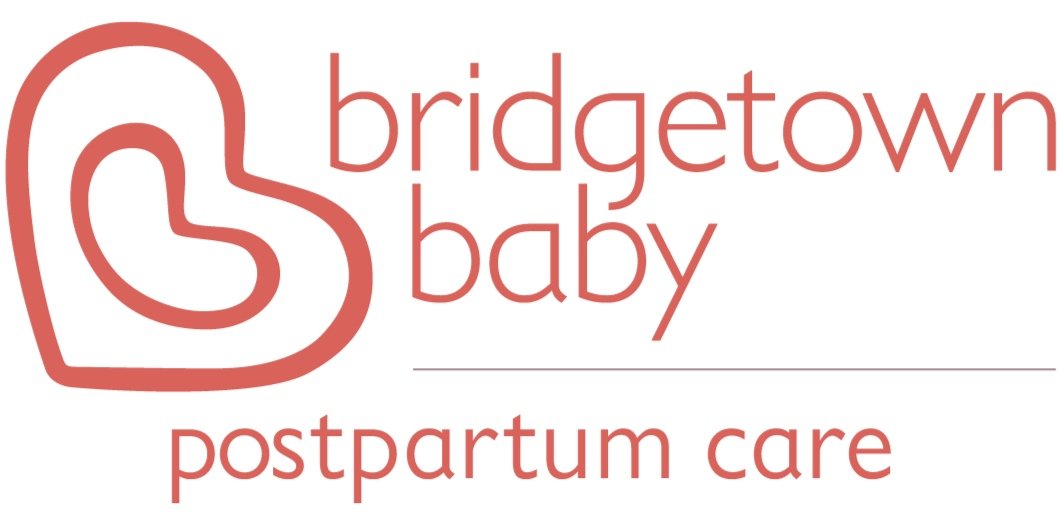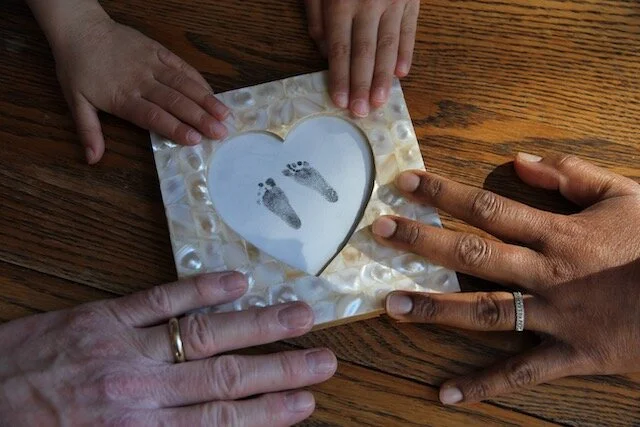Saranna's Story, Part 1: Pregnancy Loss - Will There Be Joy Again?
by Brita Johnson
Photo credit: Brita Johnson
For Saranna, family was something that didn’t come easily. At 8 weeks old, she made the long journey from an orphanage in Calcutta to an adoptive family in Oregon. Once here, she worked to overcome serious medical conditions, while contending with difficult dynamics within her adoptive family that would leave her estranged from her parents as an adult. When she and her husband Frank married in 2007, they were eager to start a family. “It was like the puzzle pieces were all in place, and we could start to make our dreams of having a family of our own come true,” says Saranna.
As hopeful as the prospect of building their family was, this hopefulness was tempered by the challenges they encountered in becoming pregnant. It took support from members of their church community to puzzle through the maze of the medical system, then a panoply of medical and alternative interventions, to finally get pregnant in the early spring of 2012.
As Saranna and Frank celebrated the joy and anticipation of her pregnancy, Saranna was also careful to follow her doctor’s guidance to a T, with special attention to managing the impacts that the pregnancy had on her ongoing medical conditions. It took a few months, Saranna says, to get back to “her normal.” And then, when she did, things went quietly sideways.
In week 19 of her pregnancy, things started to feel “off.” She shook it off, convincing herself that it could be anything, that it certainly wasn’t something serious. “I didn’t listen to my intuition,” she now says. On a late Friday afternoon, as she headed out on a round of errands to stock the nursery, her water broke.
She and Frank rushed to the hospital, where she would learn, in the words of the attending doctor, “you’re perfectly healthy...but your pregnancy isn’t.” There was no way to save the tiny being inside of her. In a swirl of shock, grief, medical decisions to be made, and hospital paperwork, she spent a sleepless night trying to come to terms with the procedure scheduled for the next morning that would end her pregnancy.
“I felt these mama instincts to ‘keep my baby safe, here in this bed,’” Saranna says, describing the irrational desire she felt for time to stand still, for the night not to end. The early hours of the morning brought a peace and a readiness to let her baby go. When the procedure had been done, she could finally learn whether the baby had been a boy or a girl; the magnitude of the loss sunk in when Frank said, “it was a little boy.” Their son, Spencer.
Bundled out of the hospital, without ceremony, she and Frank were sent home to grieve and figure out how to go forward. The next day was Father’s Day, and the seasons that followed were seasons of numbness for Saranna. She put her grief on hold, going through the motions of daily life, marriage, community, taking care of everyone but herself.
“Grief is a lonely place,” Saranna says, looking back on that time as a season of missed connections. She and Frank grieved their loss separately; she didn’t have a relationship with her parents that provided warmth and support; and her grief isolated her from the church community that had been a pillar of strength for them.
As she sought to understand the medical explanation for what had happened, Saranna also sought out local resources to support her grieving process, but, she says, “the support groups I found didn’t feel welcoming to me, as a person of color with an obvious disability.” She spent hours combing the internet for articles and stories that would validate her experience. She found some small rituals that helped her to cope. The warmth and loyalty of their dog, Mocha, was a sanity-saver and a source of comfort.
Despite the emotional numbness she felt, and perhaps based on an inborn determination that comes from surviving her own hard beginnings, Saranna was eager to try for another pregnancy as soon as she was medically cleared to do so. There wasn’t really a question of emotional readiness for her: “I wanted a different outcome and the only way to have a different outcome is to do it again,” she says, “I just got back on that horse.”
When she and Frank did get the go ahead to try for another pregnancy, she got pregnant right away, to everyone’s delight and to her own disbelief. She laughs a little now, remembering the doctor who said, “if you get five positive pregnancy tests, I think you’re pregnant.”
There’s no such thing as a simple happy ending, and though sweetly humorous, the anecdote above is also revelatory of the complexity of pregnancy, and parenting, after loss: fear of losing her second baby rimmed her emotional experience of the pregnancy; not a day goes by that she doesn’t miss the son she never knew; some of the cloud of numbness she felt in 2012 has only recently started to lift.
But you only have to meet Saranna to sense the joy that she finds in her growing family. In the second installation of Saranna’s story, Bridgetown Baby joins the team that has supported Saranna and Frank through the challenge and redemption of continuing to build their family - read more on Bridgetown Baby’s blog, coming soon.
October is National Pregnancy and Infant Loss Awareness month. We stand with the families, in our Bridgetown Baby community and around the world, who have lost a child - and we want you to know that you are not alone. If you are seeking support as you navigate this particular grief, we invite you to start with a short list of resources, on our blog.

